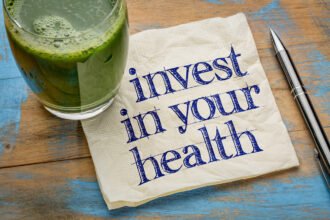Is diet the answer to our health problems? Does diet make a difference in heart disease, cancer, and a host of other chronic diseases?
Is diet the answer to our health problems? Does diet make a difference in heart disease, cancer, and a host of other chronic diseases?
When the New England Medical Journal published an article about the Mediterranean Diet it was picked up by the news media as a cure for heart disease. It was touted as a study stopped early because the results were so conclusive. In fact, it was anything but conclusive. Reading the study one cannot help but notice that there was no decrease in heart attacks, there was no decrease in the death rate overall. Further, one of the “Mediterranean diet” groups were to drink a liter of olive oil a week — one liter. I don’t think people who live in the Mediterranean ever sat around with a jug of olive oil, sipping it like a fine Chardonnay.

Consensus – eat small portions and vegetables – or is that small vegetables? Diets are confusing.
The New York Times then followed up with an article about how a number of doctors are calling for more diet studies. Really? Diet studies? Which diet is best? While a part of me says this sounds like a good idea, the scientist in me says, “How on earth are they going to do this?”
Dr. Ornish will claim that his is the only diet ever shown to reduce heart disease. His paper, done almost 20 years ago, had two major flaws: the “reduction” in plaque was minimal, and the methodology was poor (you cannot get cardiologists to agree between about 30% changes, and yet his magically could discern 2% differences in a 2D image). Ornish also used “cardiac events” – a broad category of everything from heart attacks, sense of angina, and almost everything else. Since it was not blinded (diet studies can’t be, obviously) the placebo effect would be greater than the effect measured. Still, Dr. Ornish and his followers continue to claim that their ultra-low fat diet is the only diet to reverse heart disease. They didn’t, by the way.
Ornish is a good example of diet vs modern medicine, because in the world of modern medicine we have drugs, called statins, that do show reduction in plaque size of diseased coronary arteries. Unlike the Ornish data, this data is good. Statins actually work, and work well – and you can eat lamb!
Here is the logical problems with studying diets:
We are going backwards. For years what we have done is find an ingredient that makes a difference, purify it, define it, quantify it and from that determine what works. Take statins that reduce plaques in coronary arteries. There is no diet that does that – not even the Ornish diet at its best does that. You take a pill. When you take the pill you have a defined amount of statin, and we can measure its response in the blood chemistry.
Some will say “red rice yeast” can lower cholesterol – it works because some of it has some “statin” in it. Not all of them, and not the most effective statin, and sometimes you get too much, sometimes none at all. What works best is when that statin is isolated, purified, under a rigorous set of standards, then tested, and then can be given to those who need it.
But why the need to check out a diet? Is there enough evidence that any diet has a response for a disease – and by that beyond an anecdote? No.
There are a lot of studies out there looking at people who report what they eat, record it from memory and then then are followed for years to see if they have a higher incidence of one cancer, or heart disease, or any stroke, etc. It is from these studies that you hear “too much red meat is bad ” or “processed meat leads to more cancer.” When the studies are critically examined, they are essentially worthless. Memories of what people eat, how much they eat, are horribly flawed. So much so that studies have been showing food journals, patient recall of what they eat, how much they eat, is too far off.
So how would we do a prospective diet study? Would we have people weigh food? Would the food be organic or not? Would the food be acceptable if it was in a can, or not? Would they cook it, or go out to get their diet from Red Lobster? Would we account for the medications they take, because taking statins have so much more effect than any diet, would that make those variables worthless? Would we account for if they were obese, or if they took vitamins, or if they had a family history of heart disease?
The New York Times headlined that “Experts Want More Studies of Diet’s Role for the Heart.” From their article: “We definitively need to test plausible diets, within the context of what is available and consumed in the U.S., that could lower the risk of heart disease,” said Alice H. Lichtenstein, a professor of nutrition science and policy at Tufts University and the lead author of the American Heart Association’s dietary guidelines.
The New York Times said that this study of the Mediterranean diet changed that. What the NYT writer missed was that study did not show a change in the number of heart attacks, or the number of heart attack deaths. It only showed a decrease in stroke deaths, in a small number of people. One arm of that study had the patients drink a liter of olive oil a day.
The article talks about how physicians don’t have a diet that they recommend to patients, because there are no studies, so they want studies to show a diet will work. Ask someone who is a vegetarian and they will tell you why their diet is best, how it is best for being anti-inflammatory, anti-aging, easy to follow. Ask someone who is pro-meat and paleo and they will tell you how their diet is anti-inflammatory, anti-aging, easy to follow. You get the point. There are studies with various lab values for everything- and the lab values may be, in the end, meaningless.
This brings me to my field: weight loss surgery. What we know is that if people are obese and have heart disease and we operate on them, they have more weight loss than any diet out there. The reduction in obesity has a direct correlation to decreasing co-morbid conditions of diabetes, hypertension, and even hyperlipidemia.
The more interesting field of medicine is now culinary medicine in which many of us are spending a great deal of time teaching patients to eat. What diet? Do we have an answer for which diet is best? No. Do we want studies about “the best diet?” Well, depends on the end point.
Here is what those of us who teach people to cook can tell you:
When people learn to cook they appreciate good, fresh food.
They develop a sense of taste, and move away from foods that are a part of the cheap, abundant food source in the US. Some are vegetarian, some are paleo, some like Mediterranean, but all develop a sense of portion size. Some like to re-discover the tastes of their ancestors and prefer French, Thai, Chinese, or Native American.
One thing we do know: the way people process foods in their body, is different among different ethnic groups. Eskimos don’t process sugar the same as Europeans. Norwegians tend to prefer dairy, but Mediterraneans can’t tolerate milk well. Celtics have a higher degree of celiac disease than Asians.
We can teach all those groups to cook. But do we test the Eskimo diet? How do we get raw, fresh walrus meat? Seriously, the Eskimos have the lowest recorded rate of heart disease in the world, until they smoke. Few would like the taste of fresh seal, although many might like Arctic Char.
What about supertasters? People who have the ability to detect bitter, such that they prefer bland foods over spice? What do we tell them?
While we would love to have one doctrine for diet, there are too many ethnic differences, too many food preferences, a wide variety of taste differences, and the way the foods are processed is huge.
How would we test a diet? Would we prepare the foods for them to re-heat? What if they can’t cook? What if they don’t like olives, or its oil? What if they develop a food allergy? What if we discover they have celiac disease?
Our answer to this is simple: teaching people how to cook, be it their “native” food, or a variety, provides the single lifestyle mechanism that works for weight loss surgery patients, and perhaps others. It starts out with the universal basic of dealing with food, and developing taste.
For heart disease – we don’t have an answer yet, and may not with all the variables of diet. We have some medicines that work better than any diet has shown, and perhaps we should focus our efforts there.
Until then: Just Cook.










